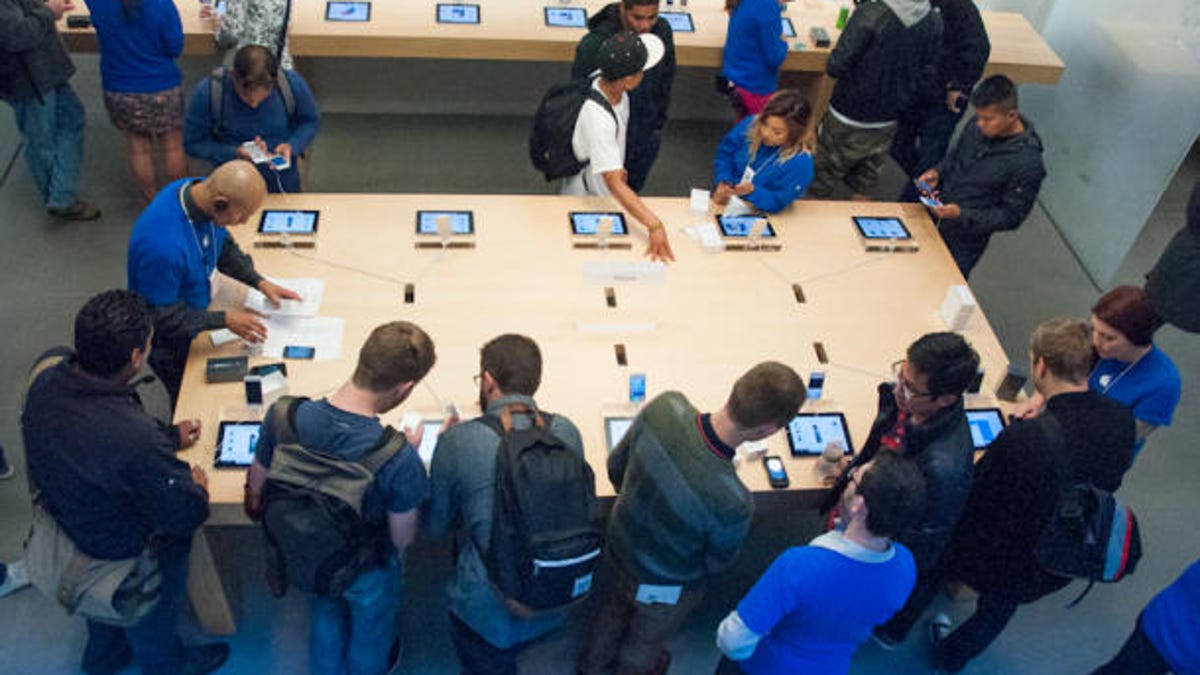The truth about iPhone 5's first weekend sales
<b>commentary</b> Whether 5 million units sold is disappointing or not is irrelevant. The real proof of whether Apple still has its mojo won't come for another few months.

commentary Apple supporters triumphantly cheered on the company after it sold 5 million iPhones over the weekend. Wall Street, however, was disappointed by the figure after seeing the long lines on Friday.
The correct reaction probably lies somewhere in the middle. Perhaps a polite golf clap?
For analysts, it was a classic case of hype feeding into the estimates, which ramped up to as high as 10 million for the first weekend, numbers that even a powerhouse like Apple couldn't hope to achieve.
"We find it unfortunate that some analysts continue to publish irresponsible estimates without taking into account realistic demand trends and potential supply constraints," said Shaw Wu, an analyst at Sterne Agee.
On the flip side, while 5 million is an impressively high number, and is 1 million better than last year's
The truth behind that first weekend statistic that Apple proudly proclaims is the number isn't really as relevant as you might think. It's a nice figure to boast about, window dressing, and it certainly fuels the hype and illusion that Apple is invincible. But in reality, that's about it.
There are too many factors, including supply issues, the availability of its phones in key markets, and reaction to the competition, to really make a judgment on whether the company's latest phone will suitably carry on the legacy of success that its predecessors enjoyed.
The true test of the phone's longevity in the market won't come until after the key holiday season, when many high-profile smartphones start to see a pullback in sales and the euphoria of the recent iPhone launch hype has long faded away.
Read CNET's iPhone 5 review here.
Now, any company would kill to sell 5 million units of anything over the weekend, but the iPhone runs at a higher standard. Sales of the iPhone 4 were amazingly resilient, and hung on to the top spot at AT&T for more than a year (it was also helped by its introduction at Verizon Wireless). Conversely, sales of the iPhone 4S had an initial pop, but began to fizzle as the months went on. Yes, it remained a top-selling phone, but its momentum couldn't match the previous iteration.
The iPhone 5 is poised to pick up where the iPhone 4 left off. Despite criticism that it isn't drastically different, the phone addresses the key concerns of iPhone users, namely the larger display and a faster 4G wireless connection. Those two, alongside the thinner and lighter design, may convince consumers that it's worth the upgrade.
Despite the initial disappointment, Wall Street remains as bullish as ever. J.P. Morgan yesterday said it estimates Apple will sell 50 million iPhones in the fourth quarter. For the quarter ending on Saturday, the firm estimates 25 million units will be sold.
Sterne Agee's Wu said the noise over the launch and the following disappointment didn't change his estimate. He still believes the company will sell 27 million this month and 46.5 million in the quarter ending December 31.
While the stock may have sold off yesterday, there remains a lot of optimism around Apple.
There are some hurdles for Apple to reach those lofty expectations. For one, the company's decision to use a new, thinner display is causing some supply shortages, according to reports. The various suppliers are having trouble producing the volume of screens needed to meet the high demand.
The supply issue is one of the reasons analysts blamed for the big discrepancy between their estimates and Apple's actual sales figure.
Another unknown is whether Apple will be able to expand the availability. In China, hundreds of millions are waiting for the iPhone to show up at China Mobile. Getting the iPhone to China Mobile is important because it's the world's largest wireless carrier with more than 650 million subscribers, or more than twice the combined customer base of Verizon, AT&T, Sprint Nextel, and T-Mobile.
Beyond internal issues, Apple and its new iPhone 5 face unprecedented competition. Its biggest rival, Samsung, has already launched a campaign mocking the iPhone lines that even some fans have admitted contains genuine insight into the silliness of the whole affair. For once, its rivals can already boast of those key features in many of their smartphones.
Samsung's Galaxy S III has been a blockbuster in its own right, and overtook the iPhone 4s this past summer.
Google unit Motorola has already tweaked Apple for the maps flap, and its lineup of Droid smartphones are an attractive alternative.
The holiday season is poised to get even more crowded with a slew of Windows Phone backed by a massive push from Microsoft, vendors such as Nokia and HTC, and carriers such as Verizon Wireless and AT&T. For the carriers in particular, the iPhone is no longer the phone to have, since it's available virtually everywhere. There is also a lot of incentive to promote other phones, since they require a lower subsidy and consequently weigh less on their profits.
Apple's iPhone 5 will be successful; there is little doubt of that. But how much of a success remains to be seen, and one weekend's worth of data isn't nearly enough to make a call yet.

